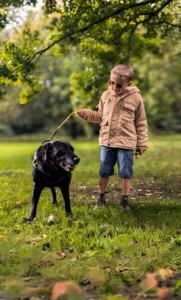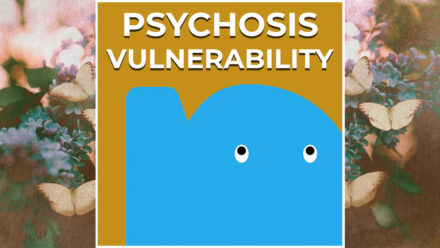
Experience experts on neurodiversity: This article is a continuation of last weeks blog.
Suzette: I wondered there was something you think people could do to be more empathic and/or supportive to you and your child? And is there something people tend to do thinking they’re helpful but you’d rather they didn’t?
Experience experts on neurodiversity
Adelle: Great question! The most helpful thing that people can do is ask. Ask if we need help. Ask what will make the situation better/more accessible/inclusive. And if you don’t know what to do then say that. I think people become embarrassed when faced with disability and we need to move more towards a culture of asking for help, admitting our weaknesses and apologising when we get it wrong. No SEN parent is looking for perfection in others, they are looking for effort.

Faye: In many situations, people may find it difficult to know how to offer help, especially when they’re unsure how their actions will be received. I can often recognise when someone has experience with special educational needs because they instinctively know how to step in and what to do. Navigating this kind of support can be tricky, though. In our case, outside help can sometimes make things worse. But as Adelle pointed out, you can never go wrong by asking.
Every situation and disability is unique
and when people ask if they can help, it’s always appreciated. Even if we don’t need the support at that moment, it means a lot to know others are willing to offer it.
It’s also really encouraging to see more organisations offering tailored sessions for children with special needs. These sessions, like quieter soft play with no music or sensory-friendly Christmas events, are a game-changer. These adaptations allow us to participate in our community in ways that allow our children to feel much more comfortable.
Talking about neurodiversity is vital, and families should feel supported and encouraged to share their experiences. It’s also key for others to be open to learning and understanding. For example, Caelan sometimes shows aggressive and violent behaviour. This isn’t discussed enough when it comes to children with special educational needs, mostly due to stigma and fear of judgement.
What many don’t realise
is that these behaviours are often beyond a child’s control, especially with complex learning difficulties or brain abnormalities. It’s not simply “bad behaviour.” It’s important that people understand this. The most heartbreaking part is the remorse Caelan shows afterwards. Once he’s calm, he’s often apologetic and sad, saying, “I’m so sorry, Mummy.” It’s gut-wrenching because, like many children, he doesn’t fully remember the meltdown—it’s out of his control.
By reducing stigma and increasing support, we can make the world a more understanding and inclusive place for children like Caelan and Rowan.
Being non-neurotypical is often seen as negative, and I can imagine it being challenging to be a parent to a special needs child. I asked my friends whether they could talk a little bit about their kids’ great qualities.
Adelle: Yes, I think everyone within the disabled community has great qualities and if they are medically well then often the main negative parts to their condition are linked to external factors; lack of support, funding, work opportunities, acceptance within their community etc. If we lived in a society that focused on equality and giving everyone the tools they needed to thrive, then a huge weight would be instantly removed from every parent carer. That would then give us the space to relax and enjoy our wonderful children.
Faye: Caelan is so much more than his diagnosis. Even before he could communicate verbally, he was a natural comedian, always finding ways to make us laugh. His enthusiasm for transport is infectious; whether it’s cars, trains, or monster trucks, he eagerly shares his passion with everyone he meets. This excitement is a beautiful reminder that neurodivergent minds bring unique perspectives that deserve celebration.
Caelan has a natural gentleness with animals
who soothe him in return. We regularly go horse riding at a wonderful stable that works with many children with special educational needs. One horse, Diesel, is truly remarkable with the kids, and a simple beach trek with him works wonders in helping Caelan find his calm.
We also joined ‘Borrow My Doggy,’ which has been a game-changer. We found the perfect match in Austin, a retired guide dog who thrives on lots of fuss and attention!
Despite the challenges he faces, Caelan continues to push through. Watching him navigate a world not designed for kids like him is tough, but his courage and resilience are truly inspiring.

I was also curious about the professional help they received.
Adelle: My son’s needs have been very complex from birth we have always received excellent care and support. I cannot fault any of the professionals who have worked with my son and we have been fortunate to not have to fight to be heard or seen. However, I am very aware that this is not always the case and currently there are hundreds of SEN children not in education as there is not a suitable provision for them. Therefore I remain thankful for all the support we have.
Positive on professional help
Faye: The professional help we’ve received has been mostly positive. We’ve had the opportunity to work with healthcare professionals, educational psychologists, and incredibly dedicated teachers. In my personal experience, we’ve always received great help and support on the medical side of things and within education. However, accessing mental health services and behavioural support has proven to be much more challenging. Finding the right support is essential but can feel isolating when those resources are hard to find. I think the main issue is the lack of funding. Some appointments aren’t frequent enough, and some services are out of reach if we don’t meet specific criteria, even when we desperately need that support.
Respite is also incredibly important for parent carers, as it provides a chance to rest physically and mentally so we can continue to provide the best level of care for our children. Parent carer burnout is extremely common because respite services are either unavailable for many families or they don’t know how to access them.
To be continued





Comments: